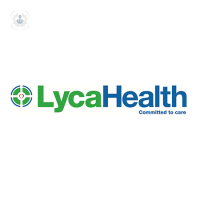What is hypercholesterolemia?
Hypercholesterolemia is an increase in the level of cholesterol in the blood above what is considered normal. The elevated level of cholesterol is related to coronary problems, lifestyle, gender, and diet. Various factors play a role in the disease; genetic and dietary factors need to be taken into account, as well as other ones related to physical activity.

What are the symptoms of hypercholesterolemia?
Patients often do not perceive that anything is wrong with them until the possible occurrence of a cardiovascular event, such as a heart attack or angina. In some cases, cholesterol deposits under the skin may appear (xanthomas or xanthelasma).
What are the causes of hypercholesterolemia?
The main factors contributing to hypercholesterolemia are:
- An unhealthy diet: excessive consumption of animal fats or alcohol makes the body consume other types of nutrients first, so it is more likely that cholesterol is not broken down and hence it accumulates in the arteries.
- Hepatic, renal, or endocrine diseases.
- Familial hypercholesterolemia: a hereditary disease in which cholesterol cannot be broken down, leading to a gradual increase in its level.
Can hypercholesterolemia be prevented?
The main recommendations for preventing hypercholesterolemia are as follows:
- Follow a balanced diet (it is important to avoid saturated fats).
- Do physical activity of moderate intensity on a regular basis.
Following these two recommendations also helps to prevent or control other risk factors for cardiovascular diseases that are sometimes associated with hypercholesterolemia, e.g. obesity or hypertension.
How is hypercholesterolemia treated?
Generally, all patients with hypercholesterolemia should improve their diet in order to reduce cholesterol levels, increase their physical activity, and eliminate risk factors that could promote the development of associated diseases.
If the dietary treatment does not achieve the desired goal, a pharmacological treatment should be added, one individualised to the patient, given that other risk factors should be taken into account, along with associated diseases.
01-09-2013 07-19-2023Hypercholesterolemia
Dr Abbi Lulsegged - Endocrinology, diabetes & metabolism
Created on: 01-09-2013
Updated on: 07-19-2023
Edited by: Conor Lynch
What is hypercholesterolemia?
Hypercholesterolemia is an increase in the level of cholesterol in the blood above what is considered normal. The elevated level of cholesterol is related to coronary problems, lifestyle, gender, and diet. Various factors play a role in the disease; genetic and dietary factors need to be taken into account, as well as other ones related to physical activity.

What are the symptoms of hypercholesterolemia?
Patients often do not perceive that anything is wrong with them until the possible occurrence of a cardiovascular event, such as a heart attack or angina. In some cases, cholesterol deposits under the skin may appear (xanthomas or xanthelasma).
What are the causes of hypercholesterolemia?
The main factors contributing to hypercholesterolemia are:
- An unhealthy diet: excessive consumption of animal fats or alcohol makes the body consume other types of nutrients first, so it is more likely that cholesterol is not broken down and hence it accumulates in the arteries.
- Hepatic, renal, or endocrine diseases.
- Familial hypercholesterolemia: a hereditary disease in which cholesterol cannot be broken down, leading to a gradual increase in its level.
Can hypercholesterolemia be prevented?
The main recommendations for preventing hypercholesterolemia are as follows:
- Follow a balanced diet (it is important to avoid saturated fats).
- Do physical activity of moderate intensity on a regular basis.
Following these two recommendations also helps to prevent or control other risk factors for cardiovascular diseases that are sometimes associated with hypercholesterolemia, e.g. obesity or hypertension.
How is hypercholesterolemia treated?
Generally, all patients with hypercholesterolemia should improve their diet in order to reduce cholesterol levels, increase their physical activity, and eliminate risk factors that could promote the development of associated diseases.
If the dietary treatment does not achieve the desired goal, a pharmacological treatment should be added, one individualised to the patient, given that other risk factors should be taken into account, along with associated diseases.
Experts in Hypercholesterolemia
-
Dr Sharaf Ibrahim
Endocrinology, diabetes & metabolismExpert in:
- Thyroid disorders
- Diabetes
- Parathyroid gland
- Adrenal gland disorders
- Hypercholesterolemia
- Hypogonadism
-
Dr Negar Maghsoodi
PathologyExpert in:
- Lipidology
- Hypercholesterolemia
- High triglycerides
- Cholesterol
- Weight loss
- Obesity
-
Dr Dushyant Maradia
CardiologyExpert in:
- Chest pain
- Dizziness
- Shortness of breath
- Echocardiogram
- Stress test
- Hypercholesterolemia
-
Dr Mehdi Mirzazadeh
Internal medicineExpert in:
- Osteoporosis
- Kidney stones test
- Metabolic syndrome
- Hypercholesterolemia
- Lipid disorders
- Biomarkers
-
Dr Zoe Astroulakis
CardiologyExpert in:
- Coronary angioplasty
- Coronary heart disease
- Chest pain
- Hypertension (high blood pressure)
- Hypercholesterolemia
- Cardiac rehabilitation
- See all

LycaHealth Canary Wharf
LycaHealth Canary Wharf
1 Westferry Circus, Canary Wharf. E14 4HD
No existe teléfono en el centro.
By using the telephone number provided by TOP DOCTORS, you automatically agree to let us use your phone number for statistical and commercial purposes. For further information, read our Privacy Policy
Top Doctors

Chelsfield Park Hospital - part of Circle Health Group
Chelsfield Park Hospital - part of Circle Health Group
Bucks Cross Rd, Chelsfield, Orpington BR6 7RG
No existe teléfono en el centro.
By using the telephone number provided by TOP DOCTORS, you automatically agree to let us use your phone number for statistical and commercial purposes. For further information, read our Privacy Policy
Top Doctors

New Victoria Hospital
New Victoria Hospital
184 Coombe Lane West, Kingston upon Thames, KT2 7EG
No existe teléfono en el centro.
By using the telephone number provided by TOP DOCTORS, you automatically agree to let us use your phone number for statistical and commercial purposes. For further information, read our Privacy Policy
Top Doctors
-
LycaHealth Canary Wharf
1 Westferry Circus, Canary Wharf. E14 4HD, Central LondonExpert in:
- Cardiology
- Dermatology
- Diagnostic Imaging
- Women’s health
-
Chelsfield Park Hospital - part of Circle Health Group
Bucks Cross Rd, Chelsfield, Orpington BR6 7RG, OrpingtonExpert in:
- Vascular Surgery
- Cardiology
- Colorectal surgery
- General Surgery
- Maxillofacial Surgery
- Orthopaedic surgery
-
New Victoria Hospital
184 Coombe Lane West, Kingston upon Thames, KT2 7EG, South LondonExpert in:
- Cardiology
- General Surgery
- Orthopaedic surgery
- Breast augmentation
- Pain management
- Spine
- See all
- Most viewed diseases, medical tests, and treatments
- Narcolepsy
- Snoring
- Polysomnography (sleep study)
- Alzheimer's disease
- Chronic headache
- Electrophysiology study
- Autoimmune diseases
- Joint pain
- Nutrition
- Weight loss injections








